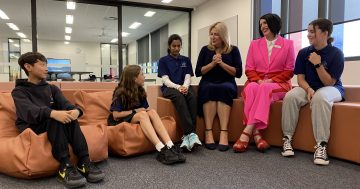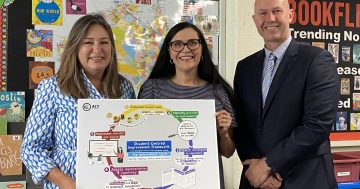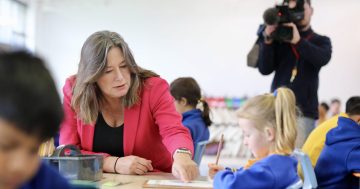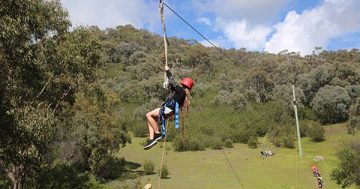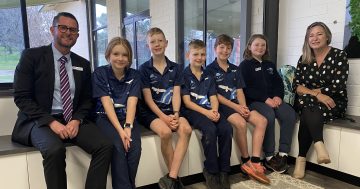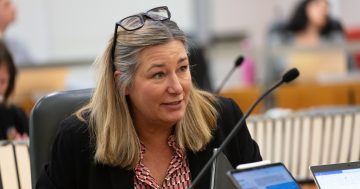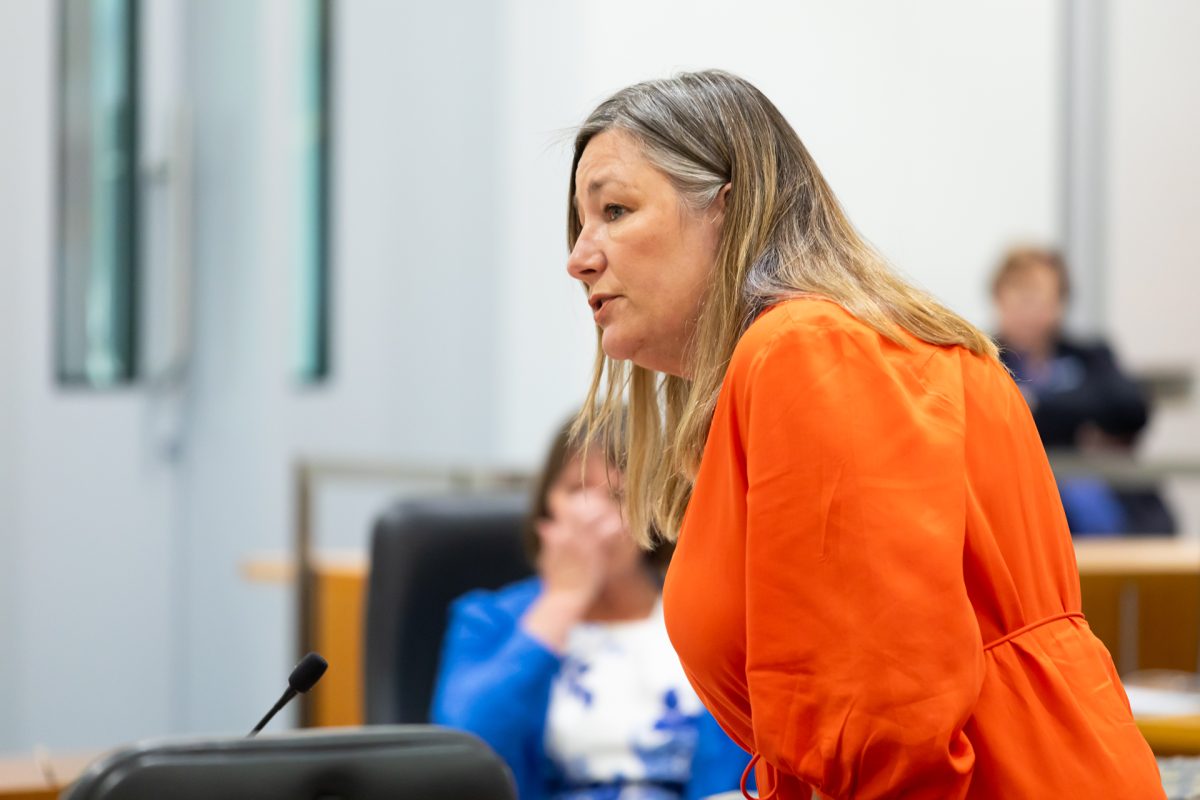
Education Minister Yvette Berry has assured the community the ACT’s specialist schools are safe from closure. Photo: Michelle Kroll.
Education Minister Yvette Berry has emphasised the ACT Government has no plans to shut down any specialist schools for students with disabilities in the ACT.
The declaration follows comments from ACT Greens disability spokesperson Emma Davidson during ministerial statements in the Legislative Assembly this week.
Ms Berry had provided the government’s response to an Auditor-General report which had criticised the way schools currently assess and provide support for students as burdensome and distressing, and found assessment to access specialist programs placed administrative and financial burdens on both families and schools, which risked unequal outcomes for students.
Once her speech had finished, Ms Davidson stood up to express her view that what the ACT was doing in this space was good, but the government needed to go “further, faster and [be] fairer”.
She also voiced her concerns after some of the commissioners from the Disability Royal Commission had expressed the view that specialist schools should be closed.
“For some families, specialist schools are the only education option they have and they’ve been let down in the past by an education system that didn’t meet their student’s needs in community public schools,” Ms Davidson said.
She argued instead students with a disability and their families wanted and deserved “choice and voice” in their education.
“We need to significantly improve inclusion in mainstream education settings through cultural change, capacity and capability building, resourcing and two-way learning,” Ms Davidson said.
“We need a clear and strong transition plan to achieve truly inclusive education and improve inclusion in mainstream education settings in a way that provides people with disability and their families with a real choice.
“We all benefit from a more inclusive education system.”
Ms Berry was quick to clarify the ACT had no such plans to shut down specialist schools.
“I want to make it very clear in the ACT, as part of our Disability Inclusion Strategy, we will not be closing specialist schools in the ACT,” she said.
“We will in fact be using the opportunity to learn from specialist schools, sharing their expertise across our school system, and making sure that all our schools are as inclusive as possible.”
The First Action Plan of the ACT’s Inclusive Education Strategy, which was launched last year, had committed to establishing formal school partnerships between Canberra’s four specialist schools and their surrounding local schools to create “mentoring, coaching and observational opportunities” for school-based staff.
Ms Berry also said the government was continuing engagement with families and those in the disability sector to ensure education was provided to students “where they need it and where they prefer it to occur”.
The rest of Ms Berry’s update had announced that student need rather than student diagnosis was the focus of a new pilot for children with disabilities at ACT public schools.
She said a new “Student Adjustment Matrix” was being trialled at schools after five schools tested it out last year.
“[This matrix aims to] better understand the adjustment needs of students so that resourcing can be determined on student need rather than student diagnosis,” she said.
The Nationally Consistent Collection of Data on School Students with Disability has reported about 20 per cent of ACT public school students are receiving adjustments for disability or imputed disability under its scheme, with another five per cent on formal disability programs.
The Education Directorate was advised in the Auditor-General’s report to transition from the Student-Centred Appraisal of Need (SCAN) model to a functional needs-assessment model which considered student voices, aspirations, goals and strengths, their functional needs in their school context, and was linked to the provision of reasonable adjustments.
A Preschool Adjustment Matrix is also being trialled.
Overall four of the Auditor-General’s recommendations have been agreed to, with the other four agreed in principle and needing further consideration and consultation with staff and schools.
Ms Berry also took the chance to update the community on the government’s $9.9 million investment to strengthen and embed inclusive practices in public schools, including through a new team of inclusion coaches.
She said seven inclusion coaches had been recruited and allocated to schools, initially working in the Tuggeranong area, with the ability to work with 12 schools and colleges in the region.















